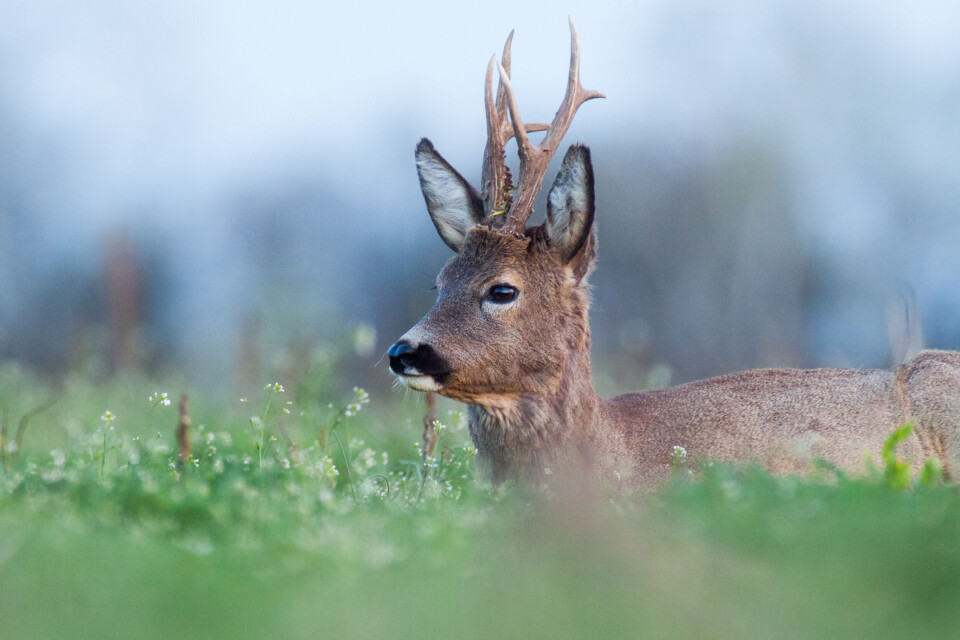-
Free fraud service for UK homeowners living in France
Owners are encouraged to sign up for a free monitoring service from HM Land Registry to reduce risk
-
New civic tests for foreigners in France launch amid criticism
Applicants for some types of residency cards must now take 45-minute test
-
Workers in France can take 17-day break using only eight days of leave in 2026
Favourable calendar for public holidays makes extended May break possible, with five guaranteed long weekends throughout year
‘Drunk’ deer in Normandy: Why this natural phenomenon happens
People are warned to stay calm if they see a deer acting strangely and to call the nearest wild fauna centre if anyone is in danger

Animal protection associations in Normandy, north west France, are warning people to take care if they come across any deer in the coming weeks as they may be ‘drunk’ at this time of year.
The phenomenon is natural, and occurs because deer love to eat sugary spring buds, explains the animal association 30 millions d’amis. This becomes a problem, however, when the sugar ferments in their stomachs and causes a similar reaction to that of too much alcohol.
The deer then become disoriented and sometimes panic, which may cause them to stray into dangerous situations.
Alain Coupet, fauna lieutenant in Eure, who helps with rescue calls, said: “It’s delicious to them. It would be like eating honey or sugar for us. We take one piece of cake, then another, then another…but they don’t know how to stop. And then they get really very drunk.”
And while it is rare for hikers and drivers to come across a deer in this state, it can happen, says Aspas (Association pour la protection des animaux sauvages).
Richard Holding from Aspas recommends that anyone who sees a deer that is possibly acting strangely, to “stay calm, do not run, as this may cause the animal to feel threatened, and try to hide and just watch this rather astonishing spectacle”.
However, if the animal is behaving in a way that could be dangerous to others or to itself - such as near a road or town, then people are advised to contact the nearest wild fauna centre.
Mr Holding said: “In general, motorists should be careful on the roads in spring. There is a lot going on at this time for wildlife. Animals that normally come out at night come out during the day. You have to be on the lookout and vigilant in the countryside on the roads. You don't know what might come up.”
It comes after a number of cases of ‘drunk deer’ have hit headlines. On May 3, firefighters in Rouen rescued a deer that had fallen in the Seine river. In Eure, a drunk deer was found near a garden in the town centre of Vernon, while in April, another was rescued from the town’s hospital car park.
#Intervention #insolite
— Sapeurs-pompiers 76 (@Sdis76) May 5, 2022
Hier, un #chevreuil a été secouru par nos équipes dans la #Seine.
ㅤ
L'animal a pu être sorti de l'eau par les spécialistes du secours #aquatique.
ㅤ
Il n'était pas blessé et a pu être relâché dans la #forêt. pic.twitter.com/PHhgCR7L4G
Around a dozen specialist firefighters were needed to help with the rescue, including some to put up fences, some to cover the animal’s eyes, and others to tie its legs together to enable it to be helped safely. It was later released back into the forest.
In Orne, there have also been a number of cases of ‘wandering, drunken deer’ coming very close to homes and towns recently.
Olivier Dauvin, head of the OFB's departmental service in the department, told Actu.fr: "A month and a half ago, a resident of the town centre of L'Aigle called us, because one morning she found a roe deer in her garden.”
The phenomenon of fermented sugar in food and nectar also happens with elephants, and bees, and kangaroos and wallabies in Australia.
Related articles
What are rules should I hit a deer or boar while driving in France?
Beware drunken deer on the roads
























